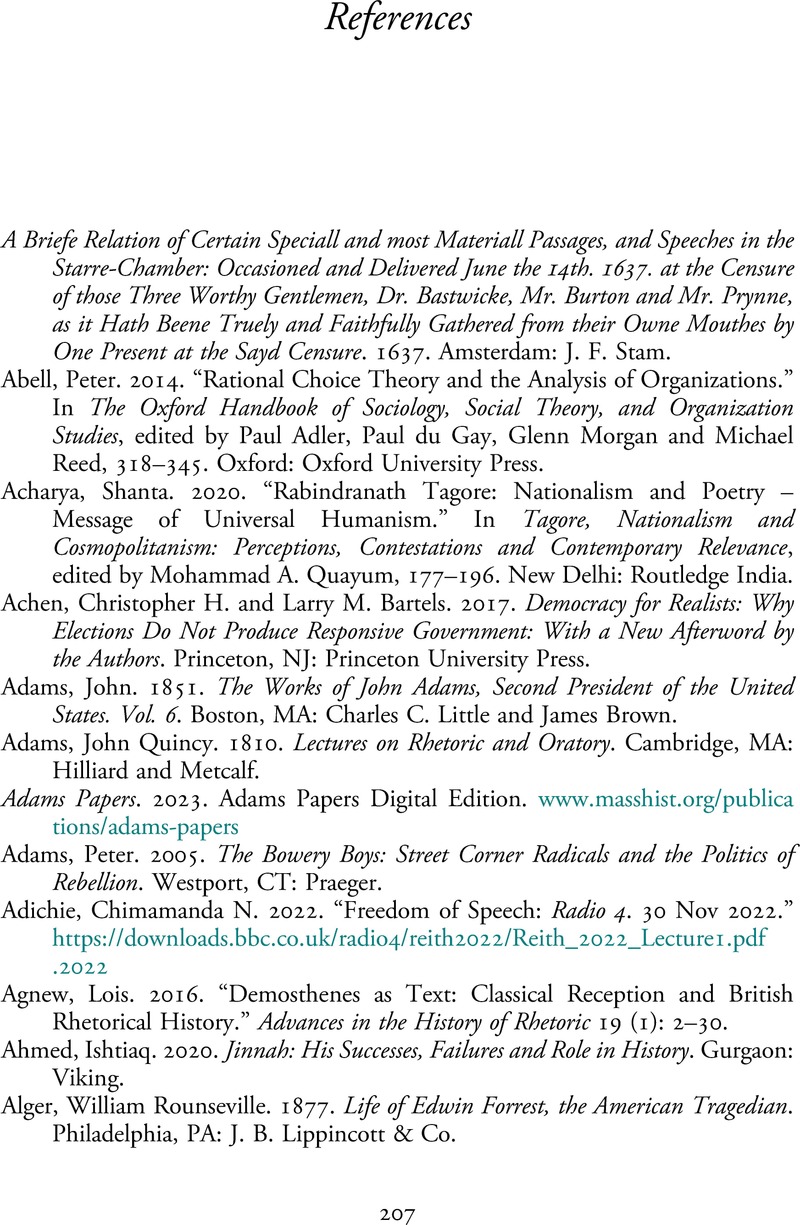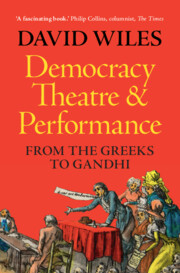Book contents
- Democracy, Theatre and Performance
- Democracy, Theatre and Performance
- Copyright page
- Contents
- Figures
- Acknowledgements
- Introduction
- Chapter 1 Rhetoric in Athens
- Chapter 2 Acting versus Sincerity
- Chapter 3 Puritan Democracy
- Chapter 4 Oratory in the French Revolution
- Chapter 5 American Democracy
- Chapter 6 Democracy as a Universal Good
- Chapter 7 Theatre and Theatrocracy in Democratic Athens
- Notes
- References
- Index
- References
References
Published online by Cambridge University Press: 17 May 2024
- Democracy, Theatre and Performance
- Democracy, Theatre and Performance
- Copyright page
- Contents
- Figures
- Acknowledgements
- Introduction
- Chapter 1 Rhetoric in Athens
- Chapter 2 Acting versus Sincerity
- Chapter 3 Puritan Democracy
- Chapter 4 Oratory in the French Revolution
- Chapter 5 American Democracy
- Chapter 6 Democracy as a Universal Good
- Chapter 7 Theatre and Theatrocracy in Democratic Athens
- Notes
- References
- Index
- References
Summary

- Type
- Chapter
- Information
- Democracy, Theatre and PerformanceFrom the Greeks to Gandhi, pp. 207 - 235Publisher: Cambridge University PressPrint publication year: 2024

